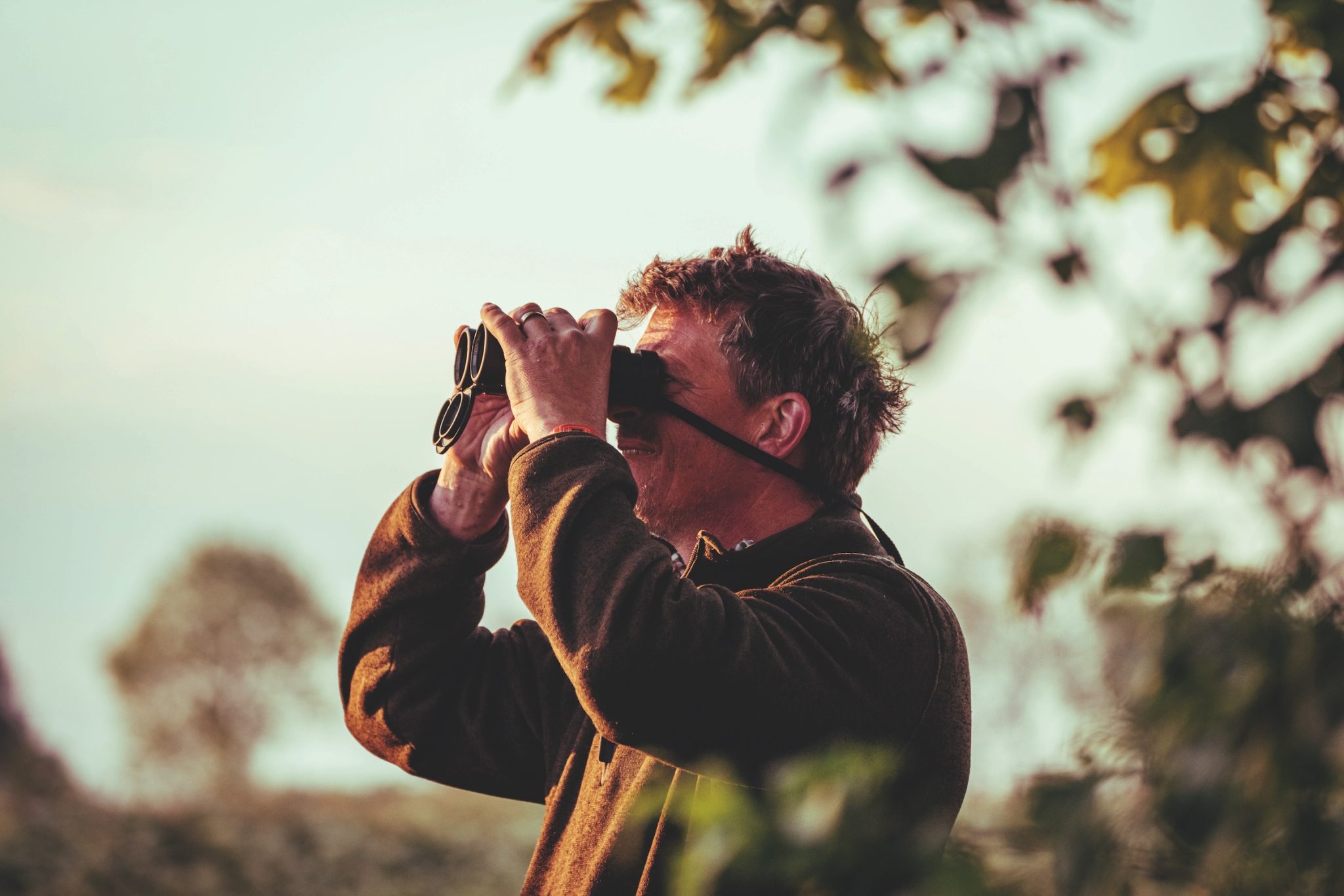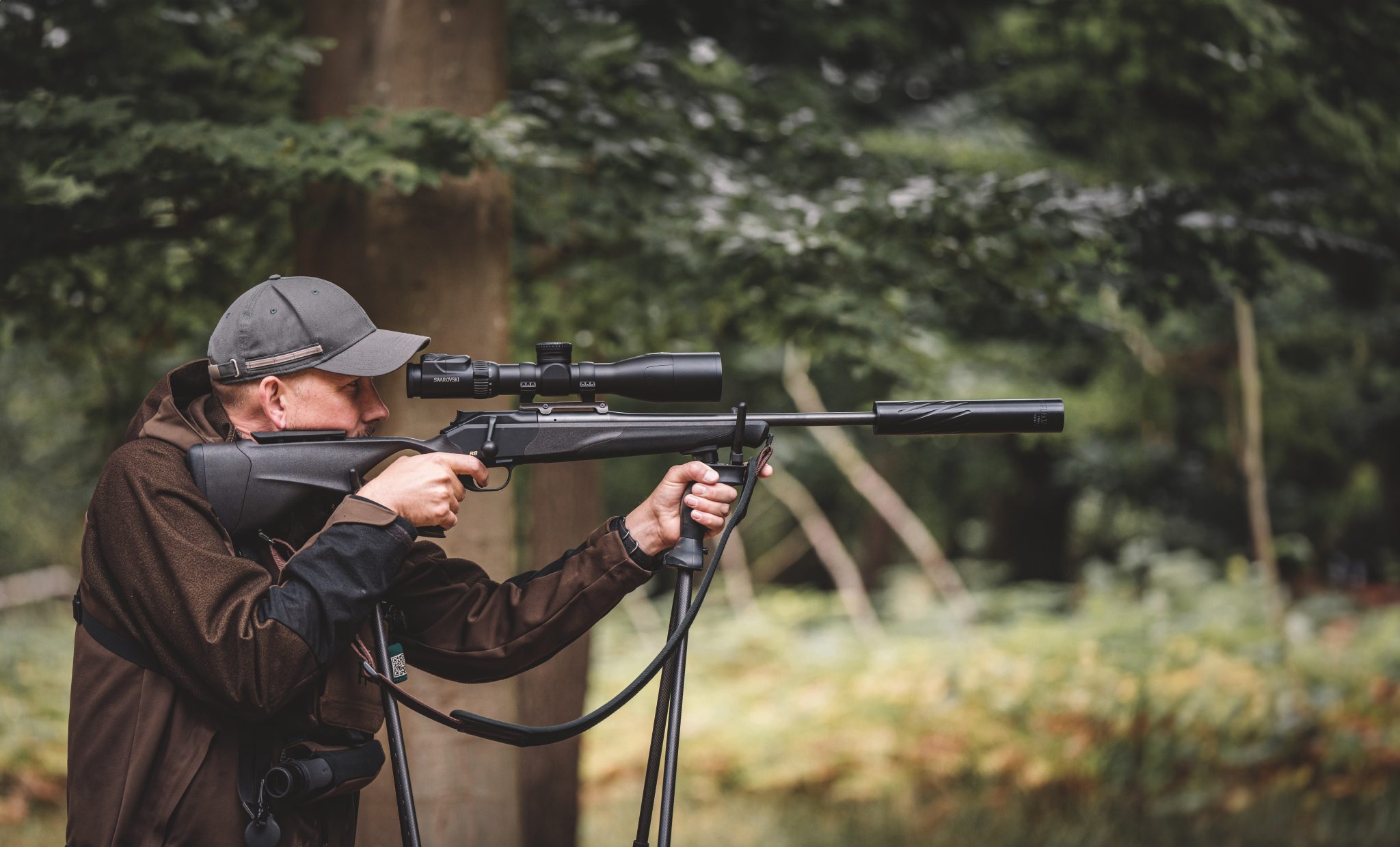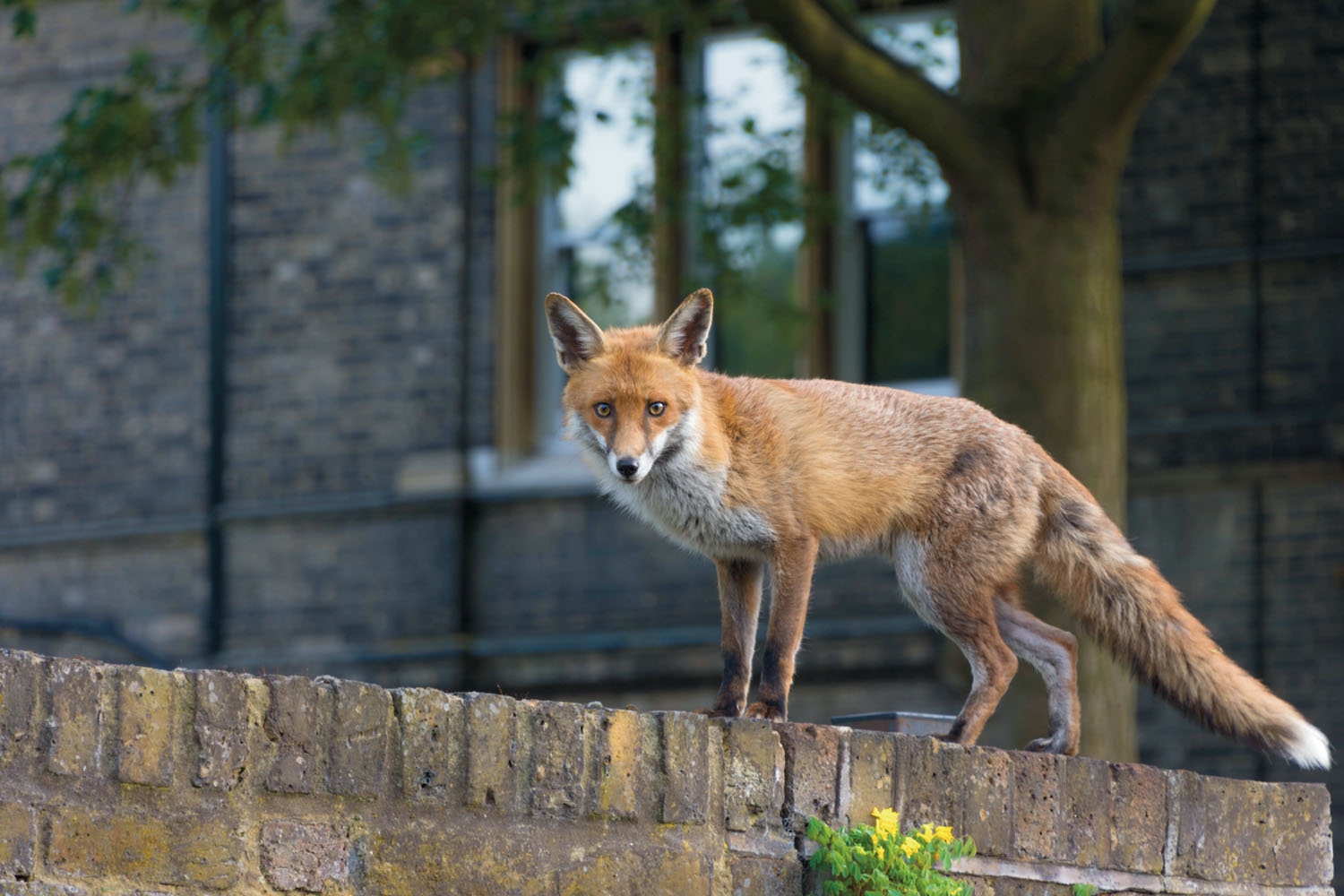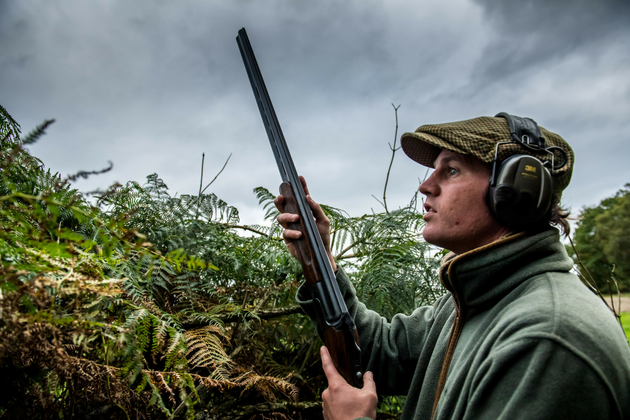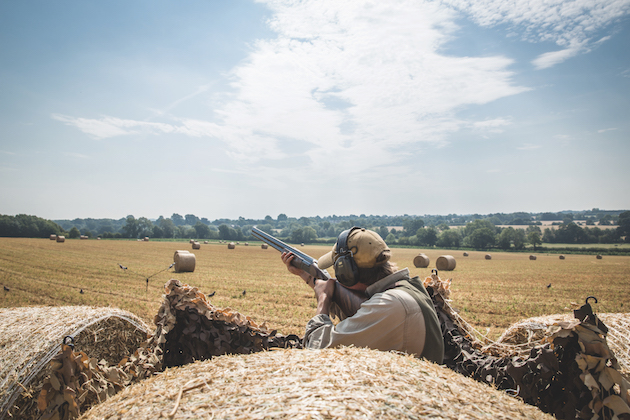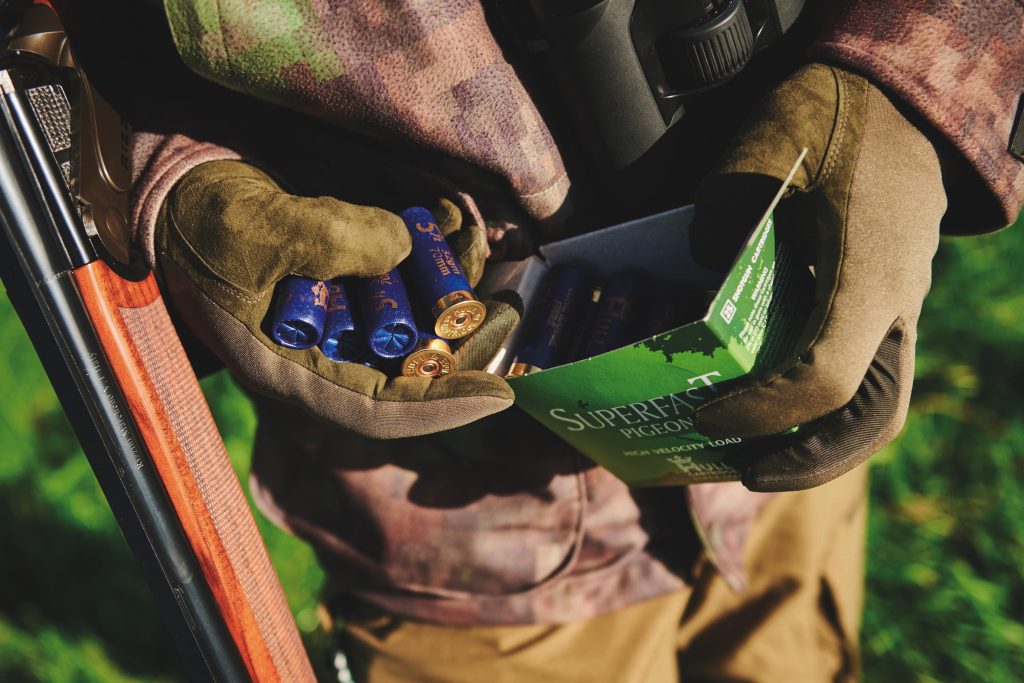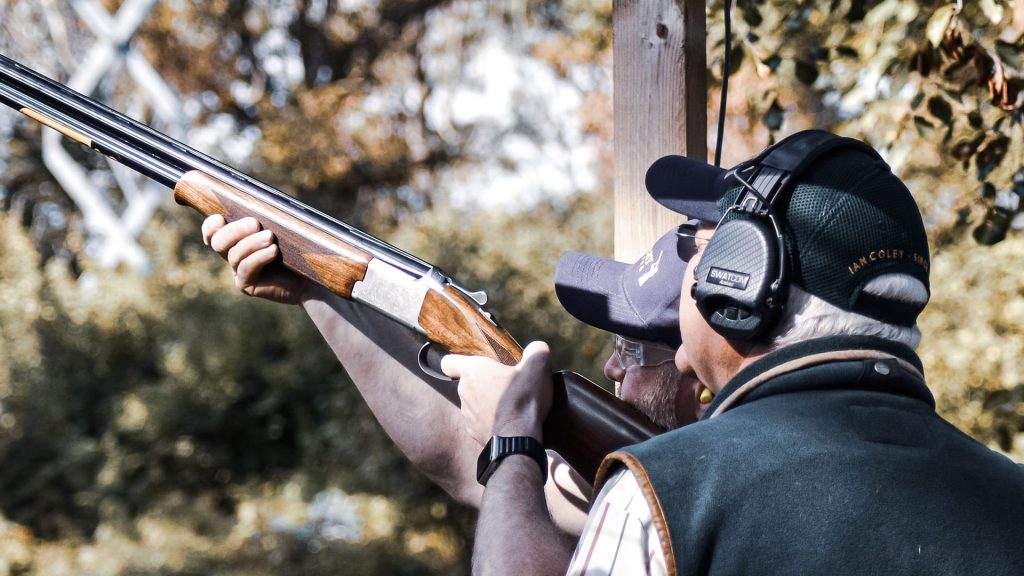★ Win a Schöffel Country shooting coat for everyone in your syndicate worth up to £6,000! Enter here ★
How to get permission for pigeon shooting
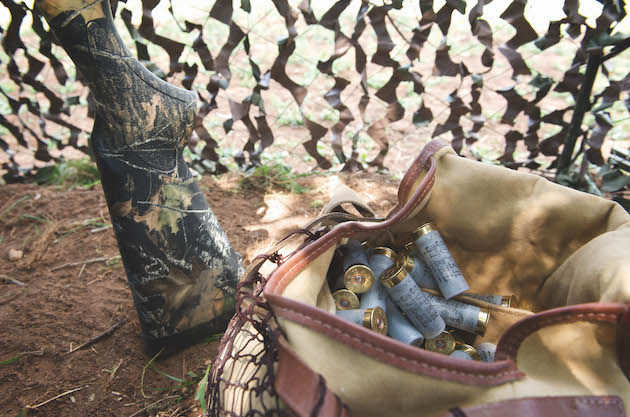 View through the netting from the hide, steel shot, shotgun cartridges and bag
View through the netting from the hide, steel shot, shotgun cartridges and bag
Permission for pigeon shooting can be hard to get. Think about it from the farmer’s point of view. He or she needs to have complete confidence in the person asking and won’t give a permission to shoot their land to anybody they don’t know reasonably well. (You could also consider guided pigeon shooting – find out more about it here.)
When you’re on the hunt for a pigeon shooting permission keep a sharp look out for pigeons. Study them and how they behave. When you get to speak to the landowner you can then give a well-informed report, which should earn you respect. Make a note of the location and crop, which will make you sound more professional when you are talking to the farmer. Don’t get the crop wrong either. (Read our guide to the law on pigeon shooting.)
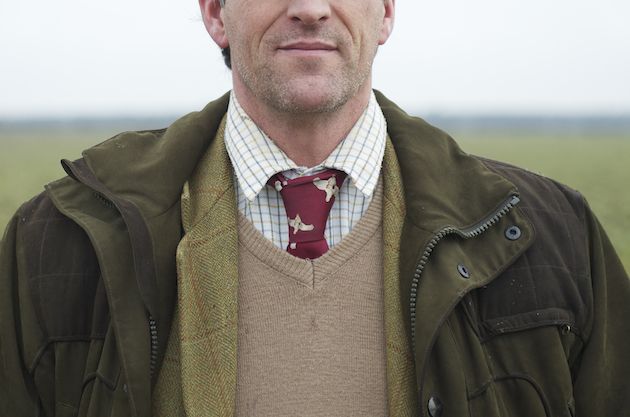
A jacket and tie will give the best impression when you’re asking for permission – leave the camo at home
- When is the best time to get a permission? Probably in the winter, when the pigeons are going after the winter rape. Farmers do not want their crop getting destroyed and in most cases will welcome a pigeon shooter if they approach the situation respectfully and carefully.
- Once you have found ground that you feel would benefit from the pigeons being shot, you will have to track down the farmer. I try to find out the name of the farm and farmer first. Don’t drive into the farmyard and disturb the farmer – chatting in the local pub, post office or shop is better. Be discreet. Once you have the name of the farmer and farm and location, you can then make your approach.
- Don’t turn up in camouflage. Dress smartly and wear a jacket and tie. You will look more approachable and less aggressive. First impressions count and you want to look as though you are modest and don’t expect special treatment.
- What time should you arrive? Don’t turn up on a Sunday, at lunchtime or during the evening. Farmers are busy people and do not like being interrupted. Late morning is probably better.
- If you manage to obtain a phone number don’t just call on the off chance. A visit is always best so that the farmer can see what you look like.
- During your visits, find out the farmer’s plan of attack for the year ahead. I cover
a lot of ground and it is important to
stay on top of any pigeon problem that
a farmer may have. The only way to do
this is to know what is going on, when
and where.
- Maps are vital and if you know the areas that are red-lined for drilling, and what is going in and roughly when, weather permitting, you can keep an eye on exactly what is going on. This makes reconnaissance easier and no opportunity is missed. I try to speak with farmers or gamekeepers over the phone or make
a quick visit once every couple of weeks.
Shooting pigeon over stubble fields in August sunshine is a pay-off for our poor winters
- I enjoy winter shooting because there is lots of variety of crop and food if you keep your eyes open. Pigeons feeding will be governed by the weather, and most importantly the night-time temperatures. (Read our guide to hanging wood pigeon.)
- Do not turn up on the day expecting to get out and shoot straight away.
- When asking for permission for pigeon shooting be confident and clear. Explain exactly who you are and where you are from. Have some id (like your driving licence to hand). If you have permission elsewhere in the area it may be of benefit, as most local farmers will know each other. A reference from other farmers whom you have permission from can also help.
- It’s a good idea to have your BASC or CPSA membership cards to hand, your shooting insurance certificate and a copy of your shotgun licence. All of which mark you out as a serious, responsible shooter.
- Explain exactly where you have seen the pigeon problem. There is every chance that the farmer will be fully aware of them.
- The decision that the farmer now makes must be fully respected. If he says no, politely ask if you could leave your details in case of any future problems and thank him for his time.
- Try to use the quiet times productively. You may not be pigeon shooting but it is always good to be ready, whether that is getting on top of your recon, permission, planning or kit. (Read Geoff Garrod’s tips on how to prepare for a pigeon shooting day.)
Related Articles
Get the latest news delivered direct to your door
Subscribe to Shooting Times & Country
Discover the ultimate companion for field sports enthusiasts with Shooting Times & Country Magazine, the UK’s leading weekly publication that has been at the forefront of shooting culture since 1882. Subscribers gain access to expert tips, comprehensive gear reviews, seasonal advice and a vibrant community of like-minded shooters.
Save on shop price when you subscribe with weekly issues featuring in-depth articles on gundog training, exclusive member offers and access to the digital back issue library. A Shooting Times & Country subscription is more than a magazine, don’t just read about the countryside; immerse yourself in its most authoritative and engaging publication.



